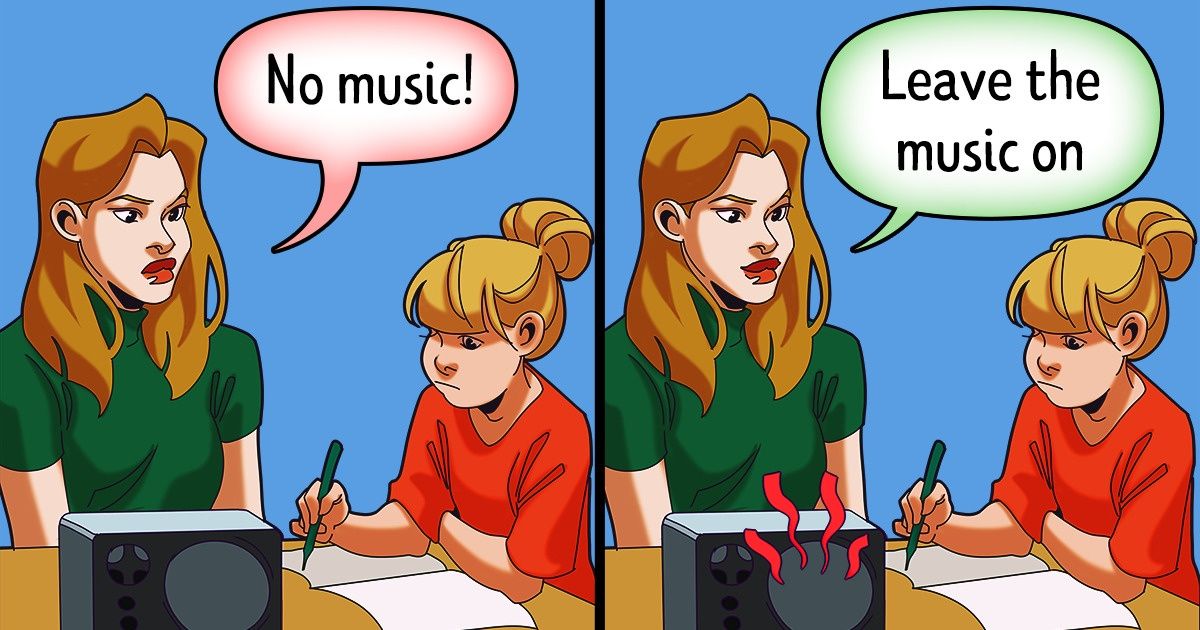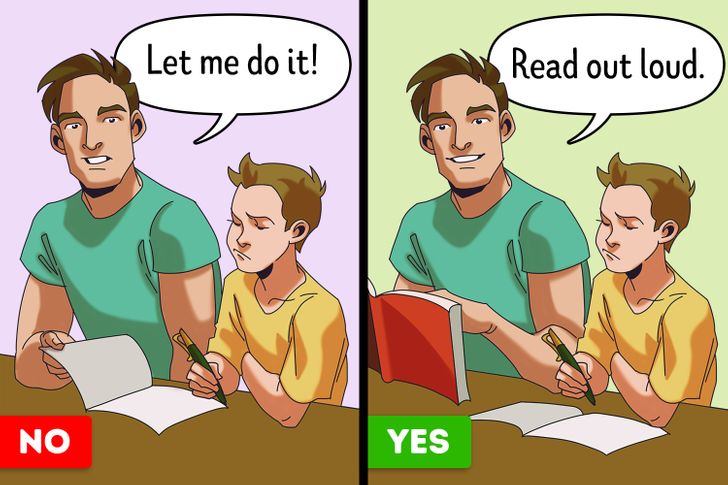Music is love
9 Tips to Help Your Child Do Homework Smoothly

There have been enough discussions about whether homework is useful for a kid, and researchers have noticed that it may improve self-discipline and independent problem-solving skills. At the same time, it’s important to create the right environment for a child to study at home to maximize the outcome and help them attain their goals.
We at Bright Side are all for a healthy study environment for our kids and we found some professional tips that can help with this.
1. Leave their favorite music on.

It might seem like music would be a distracting factor, but some experts say that this is not necessarily the case. Some kids do their homework well when the radio is turned on and their favorite music is playing. Music makes the process of studying less painful and can even motivate kids. Of course, it depends on the type of music and its volume.
So, music with lyrics can be distracting. Instrumental and classical music can’t make you smarter, but it may have a soothing effect that is also called the “Mozart effect.”
2. Create a certain area for doing homework.

Create a specific area for studying so it will become a habit. It can be in the kitchen, the dining room, or the bedroom. The TV should be off because it will distract the child as multitasking hurts performance. In this case, it’s better to leave the radio on.
All the necessary equipment should be on the table, so a child won’t interrupt each time they need a certain color pen. You can leave some water so your kid won’t have an excuse to stop and get something to drink.
3. Set a certain time for doing homework.

You should set a common routine for homework. Having a schedule helps you to complete all of your assignments. You child can do their homework in their room after dinner each night. Some days they might need to do homework at a different time, because of extra activities like sports.
You should also remember that common sustained attention while doing a task ranges from about 5 minutes for a 2-year-old child, to a maximum of around 20 minutes for older children and adults. You can allow your child to take planned breaks as a reward for finishing one whole section of work.
4. Set specific rules about using cell phones during study hours.

According to researchers, kids who use digital media devices 2 to 4 hours a day “had 23 percent lower odds of always or usually finishing their homework, compared to children who spent less than 2 hours consuming digital media.” Using a phone while studying should be allowed only if it’s necessary to call a schoolmate and discuss challenging homework. They may also need a certain app for whatever they are working on.
5. Only help solve problems with homework that your child can’t get through on their own.

There is nothing criminal about helping your child with your homework, but you only need to do it when the problem can’t be solved by your kid. If your child is able to do it by themselves, you should avoid helping.
It’s also crucial that your help should be calm and cheerful. Judging and yelling can make a situation worse. Make positive comments. Don’t try to finish the task by yourself, but instead ask your child to read it aloud again and then explain it in their own words.
6. Suggest a short break if your child got stuck.

It’s normal to get stuck, especially when you’re already tired. If your kid has trouble, take a short break so it can help them refocus. Experts suggest having 10 minutes to do something fun or active. Then you can keep trying to solve the problem.
7. Read together.

It’s very practical and smart to help your child learn by showing your own example. It’s good to read together, especially when your child first starts school. Even later, when they are older, you can still do it if your child likes it.
Show them that you read as well. Maybe your kid doesn’t see this because you do it only in your bedroom with closed doors when everyone is sleeping.
8. Ask your child to put their assignments in the order they’d like to do them.

It’s crucial to encourage children to explain their way of thinking. In this case, they feel in control of their tasks and their own work style. As a good example, you can discuss the task they would like to do first or which supplies they might need.
9. Offer rewards.

Experts suggest having your own reward system. You can set tech breaks as an example. Each our of study sessions can be broken up with 15-minute tech breaks. During these, your kid can chat with friends and relax. You also can create your own reward system according to your child’s interests.
What problems does your child have when it comes to doing homework? How do you normally solve them?
Comments
Related Reads
11 Real Stories Where Kindness Took the Hit

12 Moments of Kindness More Rare Than a Solar Eclipse That Show a Kind Heart Can Change the World

My Parents Kicked Me Out for Getting Pregnant, Now They Want Me to Care for Them

I Refuse to Be My Stepmom’s Free Maid This Christmas—Now the Family Is in Crisis

12 Moments That Teach Us to Choose Kindness Even When Life Turns Unfair

I Refuse to Walk My Daughter Down the Aisle With the Man Who Ruined Our Family

I Paid the Price for Refusing to Give My Window Seat to a Toddler on a 24-Hour Flight

I Refuse to Let My Sister Hijack My Pregnancy Announcement

I Refuse to Smile While My Coworker Makes $20K More

I Refused to Share My Inheritance With My Partner — I’m Not His Backup Plan

My Dad Demanded to Give My Stepsister the Spotlight on My Wedding—But I Reclaimed It

I Adopted a Son—Then His Biological Family Shattered Our World
